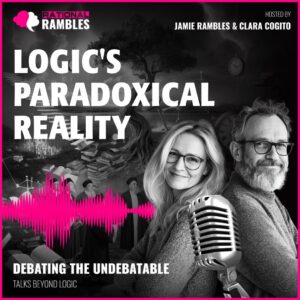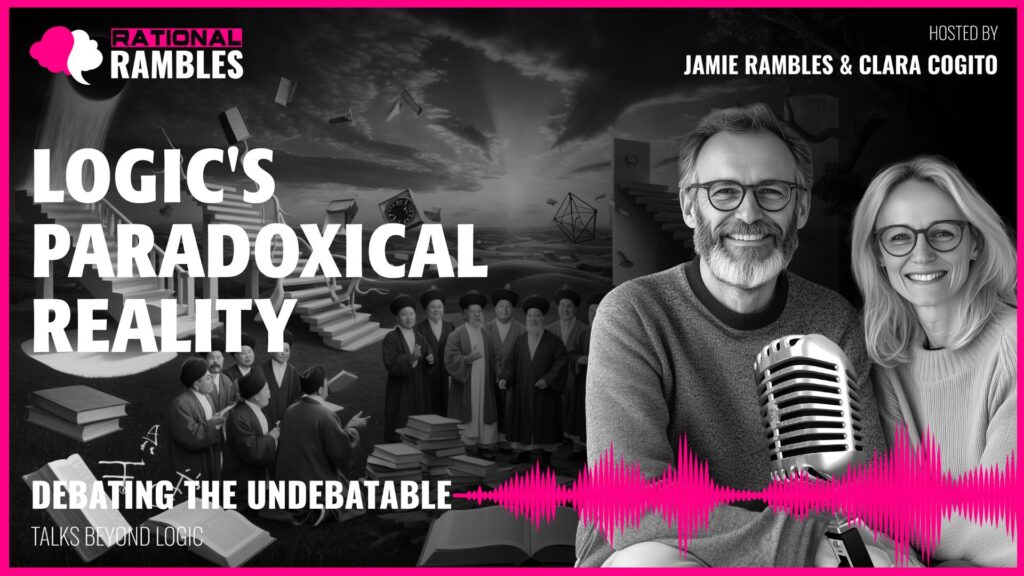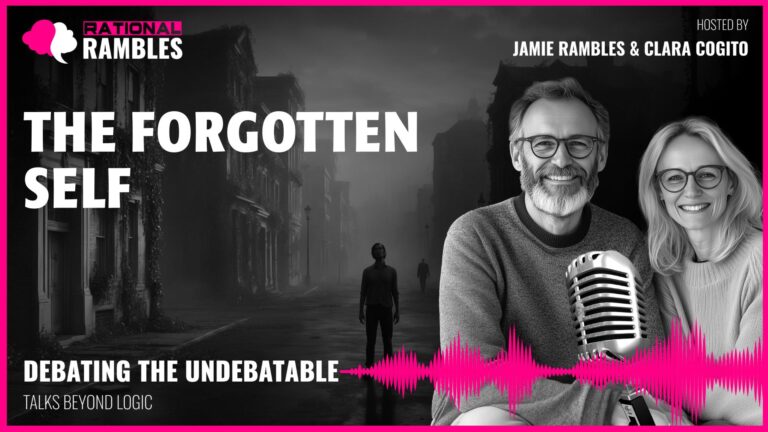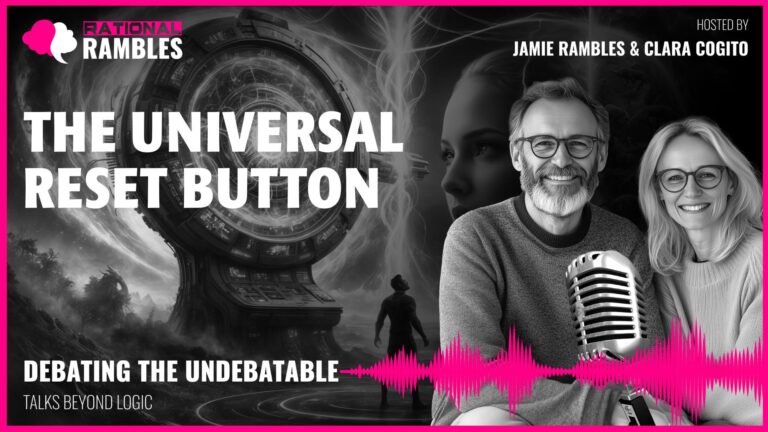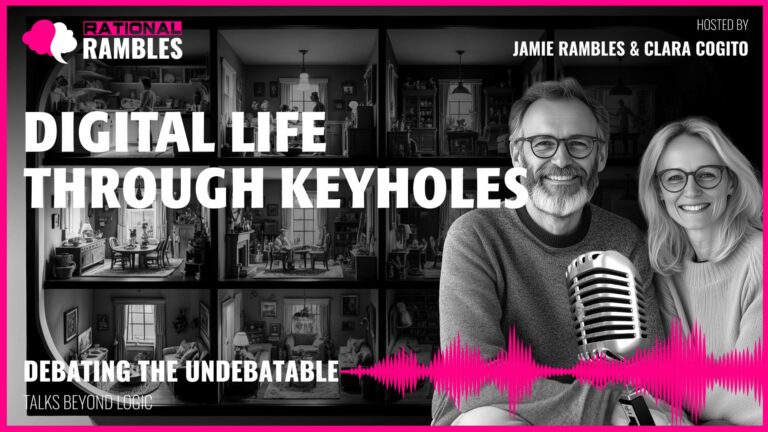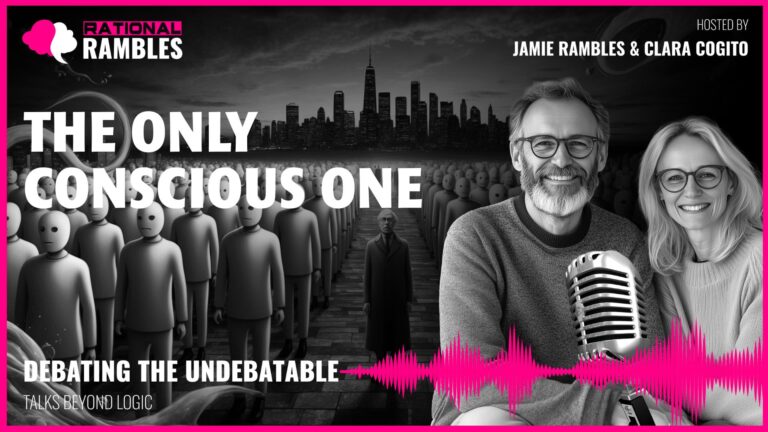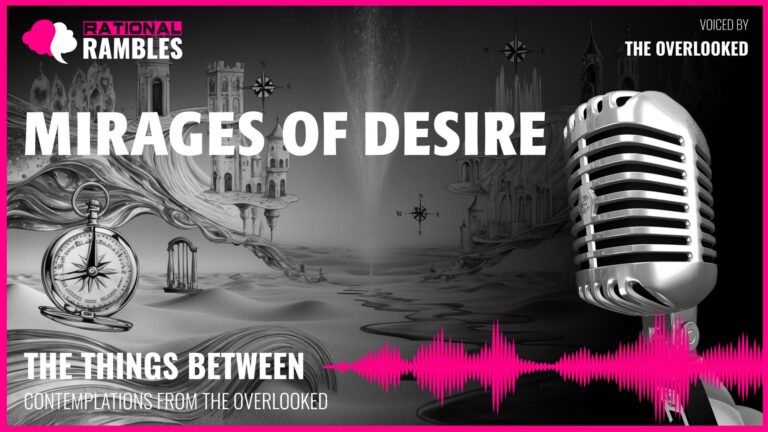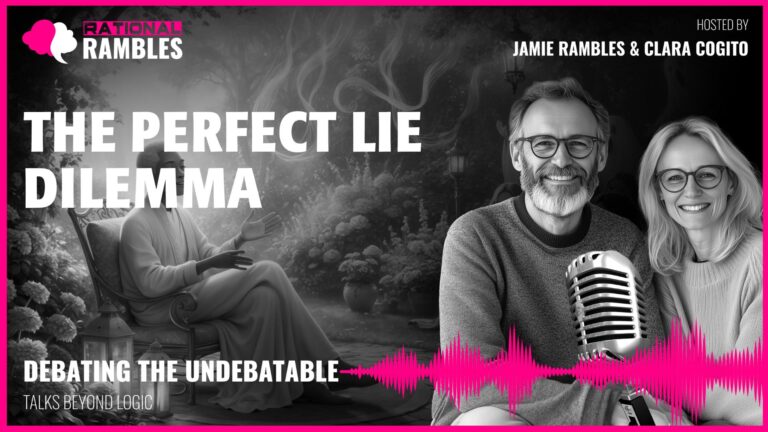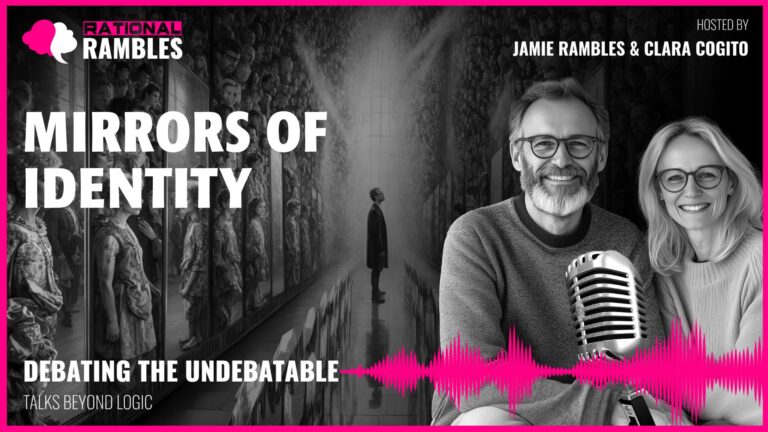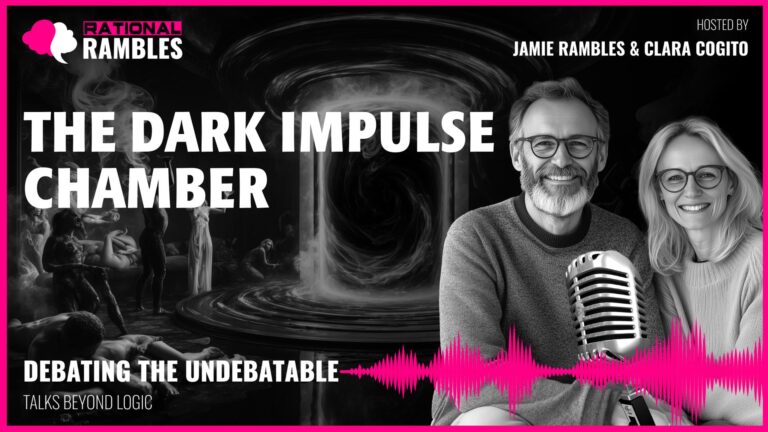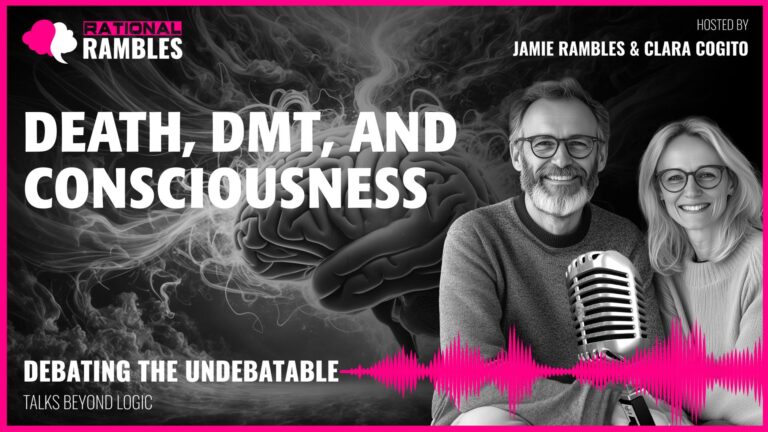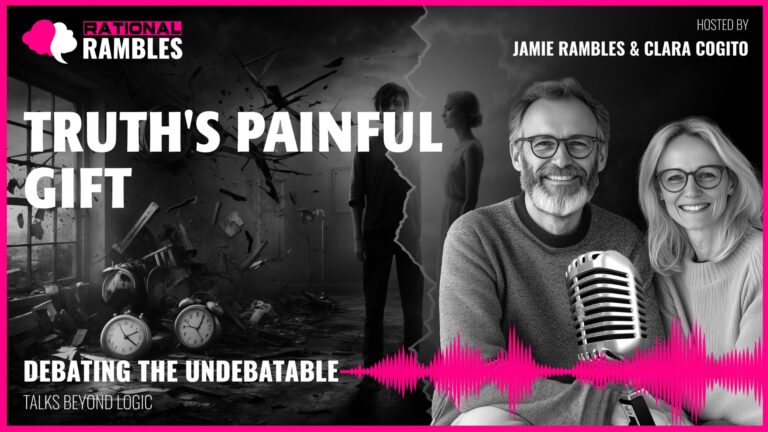Logic’s Paradoxical Reality: Embracing Contradiction in our Understanding of Existence
Introduction: When Logic Meets Its Limits
Throughout intellectual history, we have clung to a fundamental assumption: reality must adhere to logical principles. The law of non-contradiction—that something cannot both be and not be in the same way at the same time—has been the bedrock of Western thought since Aristotle. We have built our entire intellectual enterprise on the premise that reality itself is logically consistent. But what if this assumption is fundamentally mistaken? What if reality, at its most basic level, contains true contradictions—paradoxes that aren’t simply limitations of human understanding but features of existence itself?
This provocative possibility challenges not just specific theories but the entire framework through which we comprehend the world. The implications extend beyond abstract philosophical debate, potentially transforming our understanding of science, cognition, and even the nature of truth itself. If reality contains genuine contradictions, then our logical systems may be like maps that can never fully capture the territory they represent—useful approximations rather than perfect reflections.
This article explores a radical hypothesis: that reality might transcend classical logic, containing paradoxes not as problems to be solved but as essential features to be understood. We’ll examine evidence from quantum physics, neuropsychology, diverse cultural traditions, and the history of mathematical logic to consider whether our insistence on logical consistency might be more a limitation of human cognition than a necessary feature of reality. Along the way, we’ll contemplate what a more mature relationship with paradox might look like—intellectually, emotionally, and practically.
The Quantum Challenge to Classical Logic
Perhaps the most compelling evidence for a potentially paradoxical reality comes from quantum mechanics, where particles seem to defy classical logical categories. The famous double-slit experiment demonstrates that light and matter can display characteristics of both waves and particles simultaneously—a finding that appears to violate the basic logical principle that an entity must be one thing or another, but not both simultaneously.
Quantum superposition presents an even more direct challenge to classical logic. According to quantum theory, particles can exist in multiple states simultaneously until measured. Schrödinger’s famous thought experiment—in which a cat is paradoxically both alive and dead until observed—was originally intended to highlight the absurdity of applying quantum principles to macroscopic objects. Yet increasingly, physicists accept superposition not as a measurement problem but as a fundamental feature of reality.
Beyond Complementarity: Accepting Contradiction
Niels Bohr’s principle of complementarity attempted to resolve these apparent contradictions by suggesting that quantum entities can exhibit wave or particle properties, but not both simultaneously in the same experimental setup. This preserved classical logic while acknowledging quantum weirdness. But some physicists and philosophers argue that complementarity merely sidesteps rather than resolves the deeper issue: that quantum reality seems inherently paradoxical.
Physicist David Bohm suggested that our difficulties arise from inappropriately applying macroscopic logical categories to quantum phenomena. Perhaps quantum reality doesn’t violate logic so much as reveal its limitations—showing that classical either/or thinking is simply inadequate for describing fundamental reality. As Bohr himself famously remarked: “The opposite of a correct statement is a false statement, but the opposite of a profound truth may well be another profound truth.”
Quantum Logic: A New Framework
In response to these challenges, some theorists have developed alternative logical systems better suited to quantum phenomena. Quantum logic, pioneered by John von Neumann and Garrett Birkhoff, modifies certain axioms of classical logic to accommodate quantum behavior. In quantum logic, the distributive law of classical logic (which states that A and (B or C) is equivalent to (A and B) or (A and C)) doesn’t necessarily hold.
While initially developed as a mathematical formalism, quantum logic raises a deeper question: What if quantum logic isn’t just a useful tool but a more accurate reflection of reality’s fundamental structure? If so, then classical logic would be like Newtonian physics—tremendously useful within certain domains but fundamentally incomplete when approaching the deepest levels of reality.
Paradoxes in Mathematical Logic: Gödel and Beyond
The challenges to classical logic extend beyond physics into the realm of mathematics itself. In the early 20th century, mathematicians and logicians attempted to place mathematics on absolutely solid logical foundations, eliminating all paradoxes and inconsistencies. This program received its most devastating blow from Kurt Gödel’s Incompleteness Theorems (1931), which demonstrated that any consistent formal system powerful enough to express basic arithmetic must contain true statements that cannot be proven within that system.
Gödel’s work dealt specifically with formal systems, not reality itself. But it raised a profound question: If even mathematics—our most precise logical language—cannot achieve both completeness and consistency, might this reflect a deeper feature of reality? Perhaps logical paradoxes aren’t simply problems to be eliminated but windows into the limitations of formal reasoning when confronting infinite or self-referential systems.
The Liar and Other Semantic Paradoxes
Consider the classic Liar Paradox: “This statement is false.” If we assume this statement is true, then by its own content, it must be false. But if we assume it’s false, then its content is incorrect, meaning it must be true. Classical logic seemingly cannot resolve this contradiction without abandoning some cherished principle.
Traditionally, logicians have tried to eliminate such paradoxes by introducing hierarchies of language (as in Russell’s Theory of Types) or by restricting self-reference. But what if these paradoxes aren’t problems to be eliminated but features that reveal something fundamental about truth and language? Philosopher Graham Priest has developed this position in his advocacy of dialetheism—the view that some contradictions are true. While most logicians reject this position due to the principle of explosion (the notion that if a contradiction is true, then anything can be proven), paraconsistent logics have been developed specifically to contain contradictions without trivializing the entire system.
Paraconsistent Approaches: Logic Beyond Consistency
Paraconsistent logics modify classical logic to allow some contradictions without leading to logical explosion. These systems aren’t merely theoretical curiosities—they have practical applications in dealing with inconsistent databases, legal reasoning involving conflicting laws, and certain approaches to semantic paradoxes.
Brazilian logician Newton da Costa pioneered formal systems where contradictions could be tolerated without trivializing all reasoning. Similarly, relevant logics (developed by philosophers like Nuel Belnap and Alan Anderson) require a relevant connection between premises and conclusions, preventing the principle of explosion from deriving arbitrary conclusions from contradictions.
These alternative logical systems suggest that our commitment to absolute consistency may be optional rather than necessary. If robust reasoning can proceed despite certain contradictions, perhaps we should reconsider whether consistency is as fundamental as we’ve assumed.
Cross-Cultural Perspectives on Logic and Paradox
The Western philosophical tradition since Aristotle has generally treated logical consistency as a non-negotiable requirement for truth. But this commitment isn’t universal across all intellectual traditions. Many Eastern philosophical systems have historically been more comfortable with embracing apparent contradictions as revealing deeper truths rather than as problems to be eliminated.
Buddhist Logic and the Catuskoti
The Buddhist logical tradition, particularly in Nagarjuna’s Madhyamaka philosophy, employs the catuskoti or “tetralemma” which accepts four logical possibilities regarding any proposition: it might be true, false, both true and false, or neither true nor false. Rather than seeing this as logical sloppiness, the catuskoti can be understood as a sophisticated recognition that reality sometimes transcends binary categories.
Nagarjuna didn’t reject logic but suggested that ultimate reality (śūnyatā or emptiness) transcends conventional logical categories. His paradoxical statements weren’t meant to abandon rationality but to use logical reasoning to show the limitations of that very reasoning when approaching ultimate truth. This tradition suggests that embracing paradox can be a sophisticated philosophical position rather than a retreat from rigor.
Daoist Approaches to Contradiction
The foundational Daoist text, the Dao De Jing, embraces paradox from its very first chapter: “The Dao that can be told is not the eternal Dao.” Throughout the text, apparent contradictions aren’t resolved but embraced as features of a reality that transcends conceptual thinking. The yin-yang symbol itself represents the interpenetration of opposites—not as a logical problem but as a fundamental feature of existence.
This comfort with paradox isn’t unique to Eastern traditions. Certain strands of mystical thought within Western religions, from Pseudo-Dionysius to Meister Eckhart to the Jewish Kabbalah, have similarly embraced paradox as essential to understanding the divine. Nicholas of Cusa’s concept of the coincidentia oppositorum—the coincidence of opposites in God—suggests that apparent contradictions are reconciled at the highest levels of reality.
What these diverse traditions suggest is that our modern Western commitment to strict logical consistency may be a cultural and historical contingency rather than a universal necessity. Different intellectual traditions have found value in approaching paradox not as a problem but as a gateway to deeper understanding.
The Psychology of Paradox: Cognitive Dimensions
From a psychological perspective, humans generally find logical contradictions deeply unsettling. Our brains appear hardwired to detect and resolve inconsistencies in our understanding of the world. This raises an intriguing possibility: Could our insistence on logical consistency be more a feature of human cognition than a necessary feature of reality itself?
Cognitive Dissonance and the Need for Consistency
Leon Festinger’s theory of cognitive dissonance describes the psychological discomfort we experience when holding contradictory beliefs or when new information contradicts existing beliefs. This discomfort motivates us to reduce the contradiction, often by rejecting or reinterpreting information to preserve consistency. From an evolutionary perspective, this drive makes sense—consistent mental models generally lead to more effective prediction and action in everyday environments.
Research in neuroscience has identified specific brain regions that activate when we encounter logical contradictions. The anterior cingulate cortex shows increased activity when processing information that conflicts with expectations or contains internal contradictions. This neurological response suggests our aversion to paradox may be built into our cognitive architecture.
Developmental Perspectives on Logical Thinking
Developmental psychologist Jean Piaget documented how children’s logical thinking evolves through distinct stages. Young children often show comfort with logical contradictions that adults find intolerable. A child might claim to be both a doctor and a firefighter simultaneously, or believe they can be invisible while still being seen. Only gradually do children develop more rigorous logical frameworks that enforce consistency.
This developmental pattern raises an intriguing question: Is our adult insistence on non-contradiction the endpoint of intellectual development, or might it be an intermediate stage? Could there be post-formal cognitive development that returns to comfort with certain paradoxes, but at a more sophisticated level that integrates rather than precedes formal logical thinking?
Individual and Cultural Differences in Tolerance for Contradiction
Research reveals significant variation in how individuals and cultures respond to logical contradictions. Studies by psychologist Kaiping Peng and others have found that East Asian participants often show greater comfort with seemingly contradictory statements than Western participants. When presented with apparently contradictory proverbs (like “too many cooks spoil the broth” versus “many hands make light work”), East Asian participants were more likely to see both as potentially true in different contexts, while Western participants typically felt compelled to choose one as more accurate.
These differences suggest that tolerance for contradiction is not fixed but can be influenced by cultural and educational factors. Some individuals naturally display greater cognitive flexibility and tolerance for ambiguity, indicating that comfort with paradox may be a cognitive skill that can be developed rather than an intellectual failing to be corrected.
Beyond Binary Thinking: Toward Logical Pluralism
If we accept the possibility that reality might contain true contradictions, we needn’t abandon logic entirely. Instead, we might adopt a more sophisticated approach: logical pluralism, the view that different logical systems may be appropriate in different contexts or for different purposes. Just as Einstein’s relativity didn’t invalidate Newtonian physics but showed the conditions under which it applies, perhaps classical logic remains valuable within certain domains while other logical frameworks better capture other aspects of reality.
Maps and Territories: Logic as Representational Tool
A helpful metaphor is to think of logical systems as maps rather than territories. Different types of maps (topographical, political, climate, etc.) capture different aspects of the same physical terrain, with each necessarily distorting some features to highlight others. No single map tells the complete story, and the choice of map depends on one’s purpose.
Similarly, different logical systems might capture different aspects of reality, with each having domains where it proves more or less useful. Classical logic remains tremendously valuable for everyday reasoning and much scientific work. Quantum logic might better capture phenomena at subatomic scales. Paraconsistent logics might prove useful for navigating certain semantic domains or inconsistent information systems.
Meta-logical Flexibility as Cognitive Skill
This pluralistic approach suggests we should develop what we might call “meta-logical flexibility”—the ability to move between different logical frameworks as appropriate to the situation. Rather than committing dogmatically to a single logical system, we might cultivate the capacity to recognize which logical tools are most appropriate for which contexts.
This approach resembles what philosopher Paul Feyerabend advocated in his controversial “epistemological anarchism”—the view that scientific progress often requires methodological flexibility rather than rigid adherence to a single method. Similarly, “logical anarchism” would involve the strategic deployment of different logical frameworks for different purposes, guided by pragmatic concerns rather than dogmatic commitments.
Practical Benefits of Paradoxical Thinking
Far from leading to intellectual chaos, comfort with paradox can offer practical cognitive benefits. Research on creativity consistently shows that breakthrough thinking often involves embracing apparent contradictions rather than resolving them prematurely. The capacity to hold opposing ideas simultaneously—what F. Scott Fitzgerald called “the test of a first-rate intelligence”—allows for the generation of novel solutions that transcend opposing positions.
Innovation often emerges precisely at points where contradictions appear irresolvable within existing frameworks. The history of science demonstrates this repeatedly, from the wave-particle duality that led to quantum mechanics to the apparent contradictions between quantum theory and general relativity that drive current theoretical physics. Perhaps paradoxes aren’t intellectual dead ends but growth edges—points where our understanding is poised to advance to more sophisticated levels.
The Emotional Dimension: Existential Courage and Paradox
Our relationship with logical paradox isn’t purely intellectual but also emotional. Research on the need for cognitive closure reveals that humans vary considerably in their tolerance for ambiguity and uncertainty. Some individuals experience severe anxiety when faced with unresolved questions or contradictions, while others find such situations intellectually stimulating.
From Anxiety to Acceptance: Developing Paradox Tolerance
If reality does contain fundamental paradoxes, then developing emotional comfort with contradiction becomes not just an intellectual virtue but a practical necessity. This parallels developments in psychology, where approaches like Acceptance and Commitment Therapy emphasize psychological flexibility—the ability to accept uncomfortable thoughts and feelings while still acting effectively.
The discomfort we feel with paradox may be similar to other forms of existential anxiety. Philosopher Søren Kierkegaard suggested that subjective truth—truth that transforms the knower—often involves embracing paradox. His concept of “the leap of faith” wasn’t an abandonment of reason but a recognition that some truths transcend purely logical categorization and require a different kind of engagement.
The Courage to Doubt: Certainty vs. Understanding
Perhaps embracing potential paradoxes in reality requires what we might call “existential courage”—a willingness to live without the security of absolute logical consistency. This doesn’t mean abandoning critical thinking or accepting contradictions uncritically. Rather, it means developing a more sophisticated relationship with uncertainty, one that values understanding over certainty.
When Russell and Whitehead confronted paradoxes in the foundations of mathematics, they worked tirelessly to eliminate them through type theory and other innovations. This response wasn’t just intellectual thoroughness but reflected an emotional need for security and certainty. What if, instead of trying to eliminate all paradoxes, we developed the emotional capacity to work productively with them?
Wisdom Traditions and Paradox as Transformative
Many contemplative and wisdom traditions have long embraced paradox not as a problem but as a vehicle for transformation. Zen koans like “What is the sound of one hand clapping?” intentionally provoke logical contradiction to push the mind beyond conventional thinking. These traditions suggest that grappling sincerely with paradox can be transformative, expanding our capacities for understanding in ways that purely logical approaches cannot.
Rather than seeing tolerance for paradox as intellectual weakness, we might reconceive it as intellectual maturity—the capacity to hold complexity without premature resolution. Just as developmental psychologists recognize that moral development involves moving from rigid rule-following to more nuanced contextual judgment, perhaps intellectual development involves moving from rigid logical consistency to a more sophisticated engagement with apparent contradictions.
The Path Forward: Integrating Paradox into Knowledge
If reality does contain fundamental paradoxes, how might we integrate this understanding into our intellectual frameworks without abandoning rationality entirely? Several approaches offer promising directions.
Dialethic Logic: Accepting True Contradictions
Philosopher Graham Priest’s dialethic logic formally accepts that some contradictions may be true. By rejecting the principle of explosion (which claims that from a contradiction, anything follows), dialethic logic creates space for treating certain contradictions as genuine features of reality rather than errors in reasoning. This approach doesn’t treat all contradictions as true but offers a formal framework for distinguishing between contradictions that reveal deeper truths and those that simply reflect confused thinking.
Dialethic approaches have been applied to semantic paradoxes like the Liar and to certain problems in set theory. More controversially, some philosophers have suggested that dialethic logic might help resolve paradoxes in our understanding of motion, change, and the infinite—areas where paradoxes have persisted since Zeno first formulated his famous paradoxes over two millennia ago.
Hegelian Dialectic: Contradiction as Generative
Hegel’s dialectical method suggests that confronting contradictions doesn’t end in logical chaos but generates synthesis—new understandings that incorporate and transcend opposing elements. In this view, contradictions aren’t errors or endpoints but necessary stages in the development of more comprehensive understanding.
The Hegelian approach doesn’t abandon logic but suggests that static logical systems can’t fully capture a reality that is fundamentally dynamic and evolutionary. Contradictions emerge not because reality is illogical but because reality is continually evolving through the resolution of contradictions into higher-order syntheses. This perspective suggests that paradoxes might be productive rather than problematic—revealing points where our understanding is ready to advance to more sophisticated levels.
Pragmatic Criteria: Fertility Over Consistency
A pragmatic approach would evaluate logical systems not primarily by their internal consistency but by their usefulness in helping us navigate and understand reality. William James suggested that the “cash value” of ideas lies in their practical consequences. Similarly, we might judge approaches to paradox by their fertility—whether they generate new insights and predictions—rather than by their conformity to predetermined logical standards.
Quantum mechanics offers a compelling example. Despite incorporating elements that seem paradoxical from a classical perspective, quantum theory produces astonishingly accurate predictions and has enabled technologies from lasers to microchips. Its practical success suggests it captures something fundamental about reality, even if that reality defies our intuitive logical categories.
Complementary Models: The Both/And Approach
Perhaps the most practical approach involves maintaining multiple complementary models of reality, each valid within certain domains. Just as physicists use both quantum and classical models depending on the context, we might cultivate the capacity to employ different logical frameworks as appropriate to the situation.
This complementary approach doesn’t mean that “anything goes” but recognizes that different aspects of reality might require different conceptual tools. Rather than seeking a single, all-encompassing logical system, we might develop a repertoire of approaches, each capturing different aspects of a reality too rich to be encompassed by any single framework.
Conclusion: Paradox as Invitation, Not Obstacle
If reality does contain fundamental paradoxes, this need not lead to intellectual nihilism or the abandonment of rational inquiry. Instead, it might invite us to develop more sophisticated relationships with logic itself—recognizing both its power and its limitations. Rather than seeing paradoxes as problems to be eliminated, we might approach them as invitations to deeper understanding.
This more mature relationship with paradox would involve intellectual humility—a recognition that our logical systems are tools for understanding reality rather than perfect reflections of it. It would require emotional courage—a willingness to tolerate the anxiety that often accompanies uncertainty and contradiction. And it would foster cognitive flexibility—the capacity to move between different logical frameworks as appropriate to different contexts.
Ultimately, the possibility of paradoxical reality doesn’t threaten human understanding but expands it. It suggests the universe is even more fascinating and mysterious than our most sophisticated theories can capture. And it invites perpetual intellectual adventure rather than final resolution. The limits of logic aren’t the end of understanding but the beginning of wisdom—a wisdom that embraces paradox not as defeat but as doorway to deeper truth.
References and Further Reading
Bohr, N. (1934). Atomic Theory and the Description of Nature. Cambridge University Press.
da Costa, N. C. A., & French, S. (2003). Science and Partial Truth: A Unitary Approach to Models and Scientific Reasoning. Oxford University Press.
Festinger, L. (1957). A Theory of Cognitive Dissonance. Stanford University Press.
Gödel, K. (1931). Über formal unentscheidbare Sätze der Principia Mathematica und verwandter Systeme I. Monatshefte für Mathematik und Physik, 38(1), 173-198.
Hofstadter, D. R. (1979). Gödel, Escher, Bach: An Eternal Golden Braid. Basic Books.
Nisbett, R. E., Peng, K., Choi, I., & Norenzayan, A. (2001). Culture and systems of thought: Holistic versus analytic cognition. Psychological Review, 108(2), 291-310.
Priest, G. (2006). In Contradiction: A Study of the Transconsistent. Oxford University Press.
Putnam, H. (1969). Is Logic Empirical? In R. S. Cohen & M. W. Wartofsky (Eds.), Boston Studies in the Philosophy of Science (Vol. 5, pp. 216-241). D. Reidel.
Russell, B., & Whitehead, A. N. (1910-1913). Principia Mathematica (Vols. 1-3). Cambridge University Press.
Sorensen, R. (2003). A Brief History of the Paradox: Philosophy and the Labyrinths of the Mind. Oxford University Press.


